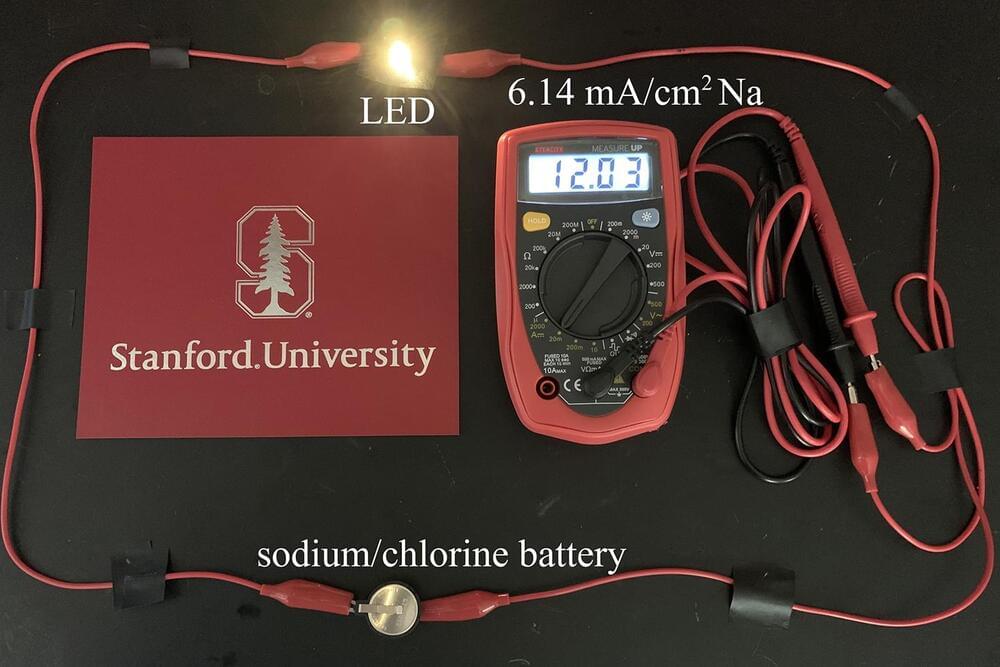Stanford University scientists experimenting with a decades-old, single-use battery architecture have developed of a new version that is not only rechargeable, but offers around six times the capacity of today’s lithium-ion solutions. The breakthrough hinges on the stabilization of volatile chlorine reactions within the device, and could one day provide the basis for high-performance batteries that power smartphones for a week at a time.
The new battery is described as an alkali metal-chlorine battery, and is based on chemistry that first emerged in the 1970s called lithium-thionyl chloride. These batteries are highly regarded for their high energy density, but rely on highly reactive chlorine that makes them unsuitable for anything other than a single use.
In a regular rechargeable battery, the electrons travel from one side to the other during discharging and then are reverted back to their original form as the battery is recharged. In this case, however, the sodium chloride or lithium chloride is converted to chlorine, which is too reactive to be converted back to chloride with any great efficiency.








